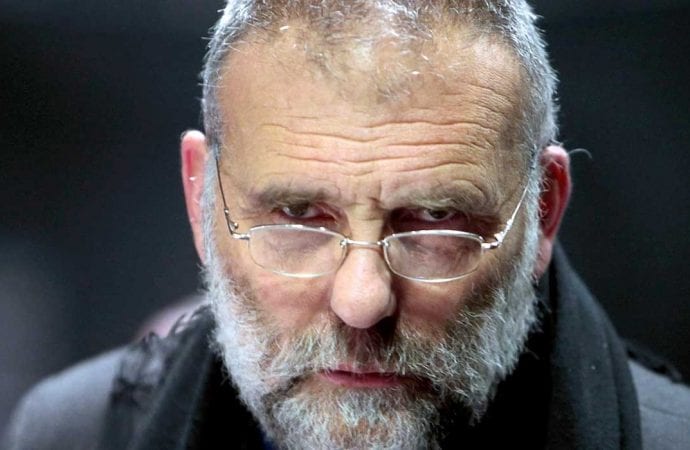Family members of an Italian Jesuit priest who was kidnapped in Syria by members of ISIS in 2013, held a press conference in Rome on Monday to mark the anniversary of his disappearance and appeal to international authorities to find answers.
“It’s been six years and we haven’t been able to learn anything,” said Francesca Dall’Oglio, sister of the kidnapped Jesuit, Father Paolo Dall’Oglio, at the Foreign Press Association in Rome, July 29.
“It’s true that he was kidnapped in a war zone, but some areas have now been liberated since November 2017,” she added.
The press conference was organized by the Friends of Father Paolo Dall’Oglio Association, together with Amnesty International and the Italian Press corps association.
It marked the sixth anniversary since the Jesuit priest, founder of the Syrian monastery of Mar Musa, was kidnapped in Raqqa, Syria, not long before the city became a stronghold of the jihadist Abu Bakr al-Baghdadi.
Speaking at the conference were Dall’Oglio’s siblings, Francesca, Immacolata and Giovanni who said they have been living in a “limbo” ever since their brother disappeared in Syria.
“The last news? We have no confirmation, either dead or alive,” Francesca said. “Much more could have been done.”
She spoke of a breaking of the trust she and her family had for the governments and institutions who promised to bring Dall’Oglio back home, especially when it took five years for authorities to return the priests’ private possessions to the family.
Inside Dall’Oglio’s suitcase, she said, they found his skullcap, his wallet and a few mementos.
“We never received any certain information from the authorities,” Francesca said. “We lack the perception that a real effort was made for Paolo.”
Varying information has emerged from Italian, Middle Eastern and international news outlets, some declaring the priest still alive and in the hands of the terrorists and others stating that he died shortly after being captured.
“We had reassurances and solidarity, but we need transparency that may rid us of the feeling that he was used for political purposes,” Francesca said.
While showing pictures of Dall’Oglio, his other sister Immacolata said that they are “sick with hope.”
“The hope of embracing Paolo again is alive in us,” she said. “Anything can happen, but what is stronger today is the necessity for information and justice.”
One journalist at the event asked whether Dall’Oglio’s family found a connection between Pope Francis’s recent letter to Syrian President Bashar al-Assad and the priest’s disappearance.
On July 22, Francis asked his close advisor Cardinal Peter Turkson of Ghana, who heads the Vatican’s department for Promoting Integral Human Development, to personally hand a letter to the Syrian president expressing “deep concern” for the humanitarian situation in the rebel controlled area of Idlib, which has been a target of airstrikes from Russia.
The papal letter included a demand for the release of displaced persons who have been detained, stirring the possibility that it was a reference to Dall’Oglio and other detainees.
“We don’t know,” Francesca answered, “the letter of the pope is for us a foothold, a hope.”
In 2015, during his Sunday Angelus prayer in Saint Peter’s Square, Francis made an appeal for Dall’Oglio close to the second anniversary of his disappearance.
“I hope for a renewed effort by competent local and international authorities so that freedom may be restored to our brothers,” he said remembering the many other victims of the ongoing conflict in Syria.
A powerful show of commitment was launched by the U.S. Department of Justice, which offered a $5 million reward for whoever relinquishes information on five Christian religious who were kidnapped in Syria, including Dall’Oglio.
The others are the Greek Orthodox Father Maher Mahfouz, the Syrian-Orthodox Archbishop Gregorios Ibrahim, the Greek Orthodox Archbishop Boulos Yazigi and Armenian Catholic Father Michael Kayyal.

“It’s a sign that something is moving,” said Francesca regarding the U.S.-backed move to obtain answers.
Since the outbreak of the Syrian civil war almost half a million people have died - including many children, according to United Nations reports. Thousands are believed to be imprisoned in the country under inhumane and life-threatening circumstances.
Russian airstrikes in Syria in the month of July 2019 have already killed 100 civilians and at least 26 children, according to the United Nations.
“That part of the world has entered into our lives,” Francesca said. “It’s almost a grace, because through Paolo we experience the suffering and tragedy of this country, of this people. It’s a way of experiencing this war on our skin.”

